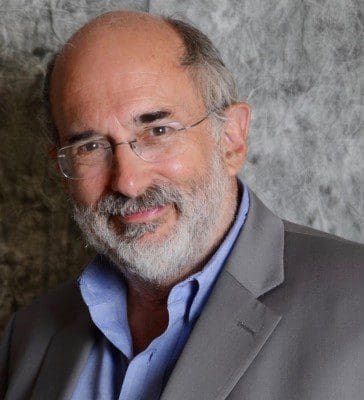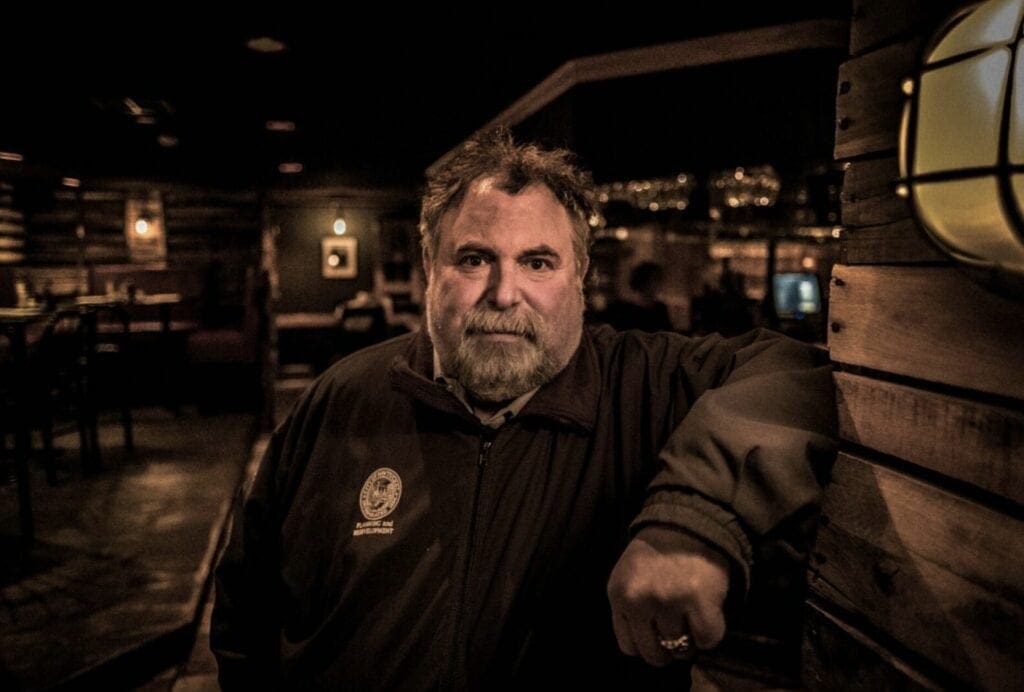Search Posts
Recent Posts
- Rhode Island Legislature Highlights Accomplishments for the 2025 Session June 25, 2025
- Sports in RI: Cody Tow, Volleyball Past, Present and Into His Future – John Cardullo June 25, 2025
- Need a Break? Time for Sour Grapes – Tim Jones June 25, 2025
- Rhode Island Weather Forecast for June 25, 2025 – Jack Donnelly June 25, 2025
- It is what it is: Commentary on 6.25.25 with Jen Brien June 25, 2025
Categories
Subscribe!
Thanks for subscribing! Please check your email for further instructions.

COVID-19 and 2021: Looking into the Crystal Ball – by Herb Weiss
By Herb Weiss, contributing writer on aging issues
Novel coronavirus (COVID-19) cases continue to surge across the nation. As of last Monday, nearly 18,986,236 Americans have contracted COVID-19 with over 331,930 dying, says the John Hopkins Coronavirus Research Center. Projection models say that deaths may spike to over 500,000 by March 2021.
As 2021 approaches, the Centers for Disease Control and Prevention (CDC) has announced that 1.9 million people throughout the nation have gotten a dose of COVID-19 vaccine. CDC also warned that a new variant COVID can be more rapidly transmissible than other circulating strains of SARS-COC-2. Even with the dissemination of a safe and effective COVID-19 next year, many experts say that COVID-19 will around for a long time.
We are now seeing New Year predictions being made about COVID-19’s future impact on the delivery of care to seniors. The New York-based Aloe Care Health, one of the world’s most advanced voice-activated medical alert and communication service for elder care, recently brought seven experts together, to make predictions as to how the COVID-19 pandemic will impact the provision of healthcare, insurtech, caregiving services and aging services in the upcoming year.
Predictions from Health Care Experts
First, part of our conversation with Joseph Wendelken, Public Information Officer at the Rhode Island Department of Health
- The COVID-19 pandemic has had a significant impact on older adults in Rhode Island, especially people living in congregate settings. We have been working to support nursing homes and assisted living facilities, as well as residents and their families, since the start of the pandemic. We are starting to vaccinate both workers and staff people in nursing homes this week, and will start with other congregate settings soon after that. We expect that, with time, this will significantly reduce the impacts on people who live in these settings. However, it is critical that we all remain vigilant. A vaccine is only one of the tools that will bring an end to the pandemic.
- We have every expectation that the vaccine will alter the situation significantly. We know how challenging this situation has been for residents and their families. We all need to say vigilant while as many people as possible get vaccinated.
- We have a number of measures in place in Pawtucket and Central Falls to help them deal with the unique challenges they face as more dense communities. In addition, we working to make vaccine available sooner to communities that have been harder hit. In the meantime, it is incredibly important that people in Central Falls and Pawtucket wear masks, practice social distancing, and isolate and quarantine when they have been instructed to do so. We all have the ability to protect the people in our household.
According to a statement released by Aloe Care Health on Dec. 22, these invited experts see a ‘Better Year Ahead.” Here are some of their insightful predictions: Jay H. Sanders, M.D., CEO, The Global Telemedicine Group, member of the Aloe Care Advisory Board, observed: “The best examination room is where the patient lives, not where the doctor works. And, any variant of the following: telemedicine is to healthcare as Amazon is to shopping; as Netflix is to the movie theater, and as on-line banking is to your local bank.”
“While 2020 turned the world upside down, it also revealed the massive gaps and deficits that exist in caregiving and senior care. I think 2021 will be the ‘Year of the Caregiver’ as companies, the senior care industry, and leading service organizations come to terms with how to best serve these underpaid and undervalued everyday heroes,” stated Amie Clark, Co-Founder and Senior Editor at the Clackamas, Oregon-based The Senior List.
Donato Tramuto, Author, Chairman and Founder of Health eVillages, noted: “After a year highlighted by the devastating impact of COVID-19, vaccinations and other measures bring us hope to combat the virus in 2021. However, it is also important that we pay attention to the unintended consequences of COVID-19. As we safely social distance to decrease exposure risk, we must find ways to intervene and deal with the social isolation and loneliness caused by the lack of connection. I expect the next decade to bring innovations in business and healthcare to help us rebuild our community of connections and address the loneliness epidemic.”
“Aging-in-place will continue to gain traction. Remote patient monitoring, personal emergency response technology, and other health matters will be addressed in-home. Health Insurance companies will redouble efforts to advance digital care management, using data to prevent acute health episodes. Covid19 will accelerate the digital adoption of remote patient care and communication. Masks will be required or desired in many public forums for much of 2021. Sadly, social distancing may be here to stay,” predicted Bob Hurley, Executive Advisor in Digital Health, eHealth; member of the Aloe Care Advisory Board.
“COVID has demonstrated the power of telehealth to support health care workers, the older population and caregivers. It is amazing to see the adoption rate grow amongst all ages and the importance it addresses for the safety and independence of vulnerable populations. I expect innovative concepts to grow and expand in 2021 that will further empower providers and the population as a whole to live healthier and fulfilling lives,” anticipates Vicki Shepard, Health and Aging Expert, co-founder of Woman Business Leaders (WBL): Women Leading Healthcare
“The last several months have given every one of us a dose of radical empathy for people who are isolated and alone. My profound hope is that this translates into better care for one another, especially older adults, in 2021 and beyond. And as our population ages overall (more than 10,000 of us reach 65 every day), I hope too that we collectively evolve beyond so many limiting, false, and often unconscious preconceptions about aging. This starts with products that are more thoughtfully, more beautifully designed, and extends right through to our everyday interactions.” Says Ray Spoljaric, CEO and Co-Founder, Aloe Care Health.
Finally, Jordan Mittler, Director and Founder of Mittler Senior Technology, adds: “In 2021, older adults will continue to rely on simple technology to interact with friends and family, as well as to function independently. Normalcy will take time to resume, and senior communities need to use home devices to function in society. Online shopping, online healthcare, online banking, and virtual communication will be major components of the lives of elders as we go into 2021.” Jordan leads an inspiring group of teens teaching elders how to use technology to improve communication and daily activities.
Predictions from a Rhode Island Physician – Dr. Michael Fine

Over the months, Michael Fine, M.D., Chief Health Strategist, City of Central Falls, says that the COVID-19 pandemic made seniors to feel isolated and vulnerable. “As people get vaccinated it will let people feel more comfortable about moving around. But January and February will be very hard month,” he warns. As we move into 2021, Fine predicts that “many people will think twice before moving to congregate settings of any sort, and we will live with new and burdensome precautions for a long time.” He thinks that Rhode Island will lose some of its assisted living facilities and nursing homes due to the ongoing pandemic. Next year, Fine recommends that older Rhode Islanders stay close to home until they are vaccinated and use food delivery services where possible. “The best way to cope is to use the telephone a lot and go out walking as much as possible, and to listen to lots of music and read a lot,” he says. “COVID-19 has changed how we live our lives. Wearing a face mask and social distancing are the new normal. “I think we will go back to life as it was. But it will take 3 to 5 years,” says Fine.
Fine, who formerly served as the state’s Director of Health, has some thoughts about combating the COVID-19 surge in the Ocean State. “My advice continues to be to shut bars and restaurants for indoor dining and to keep schools open, until we drop to below 2 new cases/100,000 population per day. Everyone who works outside their homes should be tested twice a week, and every employer should make sure that’s happening, and everyone positive should be isolated for 10 days, and all contacts go into quarantine. We need employers to take the lead on this, because government has not been able to get it done,” states Fine.
Spotlight on Government Action
“It is time we all look hard at our political leadership, which has chosen to keep factories, bars and restaurants open, at the cost of hundreds of lives and a robust economy, while the virus is spreading in our communities, hitting people of color hardest. We need to look at ourselves and our faith communities as well, allowing this to happen instead to speaking up for the sanctity of human life,” says Fine. “Democracy depends on the consent of the governed. We all went along. This response represents the most fundamental kind of institutional racism, the kind that puts profit in front of the lives of people of color and the communities in which people of color live,” he adds. “All level of government failed. SARS-CoV-2 is a cold virus. We remain completely unprepared for a truly dangerous virus, which is evolving somewhere around the world, and will hit elders and people of color hardest again,” warns Fine.
Herb Weiss, LRI’12, is a Pawtucket writer covering aging, health care and medical issues. To purchase Taking Charge: Collected Stories on Aging Boldly, a collection of 79 of his weekly commentaries, go to herbweiss.com.

Herb Weiss has enjoyed a distinguished 36 year career in journalism, earning a national reputation as an expert on aging, health care and medical issues. Over 630 articles that he has authored or coauthored have appeared in national, state and local publications. Governor Gina Raimondo appointed Him to the Rhode Island Advisory Commission on aging. Today, Herb’s weekly newspaper column appears in the Pawtucket Times and Woonsocket call, two North Rhode Island daily newspapers, and will now run on occasion in RINewsToday.com. Herb and his wife, Patty Zacks, reside in Pawtucket, Rhode Island.

If one is to prognosticate, it is important first to understand. The NGS (next-generation sequencing), the science used to identify coronavirus strains and other pathogens without prior knowledge of the organism, goes back to SARS-CoV-2. This science has been being development for the past 17 years. The reason big pharma was able to go into trials immediately was because the sequencing was done. Science has been leading this journey for quite some time and was more prepared than not.
Fortunately, science knows not politics and knows no borders. We can trust this vaccine. Its platform is brilliant and the scientists who have dedicated their lives to the building the foundation of this platform deserve the highest honors.
Now, it is important to note, the vaccine delivery system and application have faltered frankly because of the incompetent leadership of the Trump administration and unfortunately we will have to shoulder this and be patient.
However, continuing on this note, leadership, scholarship and truth matters. Trump and his administration failed at every level of this pandemic and possibly, deliberately. That cannot be over looked. Science was politicized and then disregarded and discarded. Truth became fiction. And lives were needlessly lost. An economy devastated because of utter incompetence.
Let’s focus on the fact a lot of people followed this insanity. Why do so many people subscribe to the theatre “Trump”? These are questions that better be answered and fixed or we will repeat. Being ignorant of one’s ignorance is the malady of the ignorant. Although, they be the minority, one must be aware of the tyranny of that minority.
Michael Fine, let us not go back to life as it was. We have a responsibility to re-think two platforms, our educational content and delivery platform and our healthcare platform.
Education has failed a large segment of our population and that result is so apparent by the astonishing division. But the division is not grounded in anything outside of the ad hominem fallacy. People simply don’t have the tools to apply verification principles and argue policy. Our legislators are complicit and incapable of educating and expanding their constituency. Their belief / knowledge development process is not an academic pursuit but more out of a fear of exclusion. We need to make academia, starting in kindergarten and going through college, as a path that emphasizes a love to learn and a love to read, not just a certificate. Remember, “Education makes a people easy to lead, but difficult to drive; easy to govern, but impossible to enslave”. America got way too close to authoritarianism because important curriculum disappeared.
Healthcare has removed responsibility from the patient. There’s a reason we have lost so many lives in this pandemic. Our population is not healthy. Look at the obesity and all the reactions that stem from that alone. We need to change the delivery from ‘maintaining the patient as they go down the ladder’ to changing the patients direction to becoming healthier and ascending the ladder. Insurance companies do not insure your health. Only you can insure your health. Messaging is so important.
The tragedy this pandemic has wreaked on our nation has certainly opened many eyes to the vulnerabilities that plague Americans. These vulnerabilities are on the radar of those who can effect change. It is up to all of us to correct those vulnerabilities, never forget this time and never let this happen again.
Predictions are lovely to read, especially if they agree with my thoughts. However, based on the actual information that is gleaned from the newspapers and the research that I have done, I don’t feel that we will see a downturn of cases.
I started researching virus’ in March of 2020 and one of the first things I learned is that the virus does not stay static. Some will change monthly, and some can change sooner than that. An example is the flu. This virus changes more than once a year, that is why the vaccine doesn’t do what most people think it does.
When COVID 19 first touched our shores in January 2020, most people thought it was the same type of virus as the “common” flu. Even when people were dying, no one got up and said that it was different. At that time, in the UK, Oxford started discussing the virus and had developed a vaccine that “might” work. It is a shame that they couldn’t get the money to speed up the work they were doing. We now know that they had the vaccine and according to the data, works.
What concerns me is the in March 2020 over 100,000 doses were manufactured and stored. Another 80,000 doses were paid for and they didn’t exist. Now these doses are now being used and no one mentioned it.
Getting back to Pfizer’s vaccine (and Moderna). The discussion of how many volunteers they had was another troubling issue. They tested the vaccine on small groups around the country. Small groups don’t show the problems brought about by sex, race, and mostly age. It took more than six months for anyone to stand up and say that the vaccine wasn’t tested on pregnant woman. Not enough non-whites were part of the test group. Does anyone remember thalidomide? There are still 225 people still alive. That problem didn’t arise for 24 months.
I’m 83. I want to be protected by a vaccine, however, I have stayed in my house, away from people because I don’t trust the vaccine. (Pfizer & Moderna) How long does a shot last. Can I still pass on COVID 19 even if I had the shot. If I have to get two shots to make it effective, then it is like (2019) flu shot. Even that information was wrong. We weren’t told until the flu season was almost over to get the second shot.
Misinformation has also colored my thoughts. Would it be possible for Doctors to stand up and give the proper information and if they DON’T KNOW, ADMIT IT!